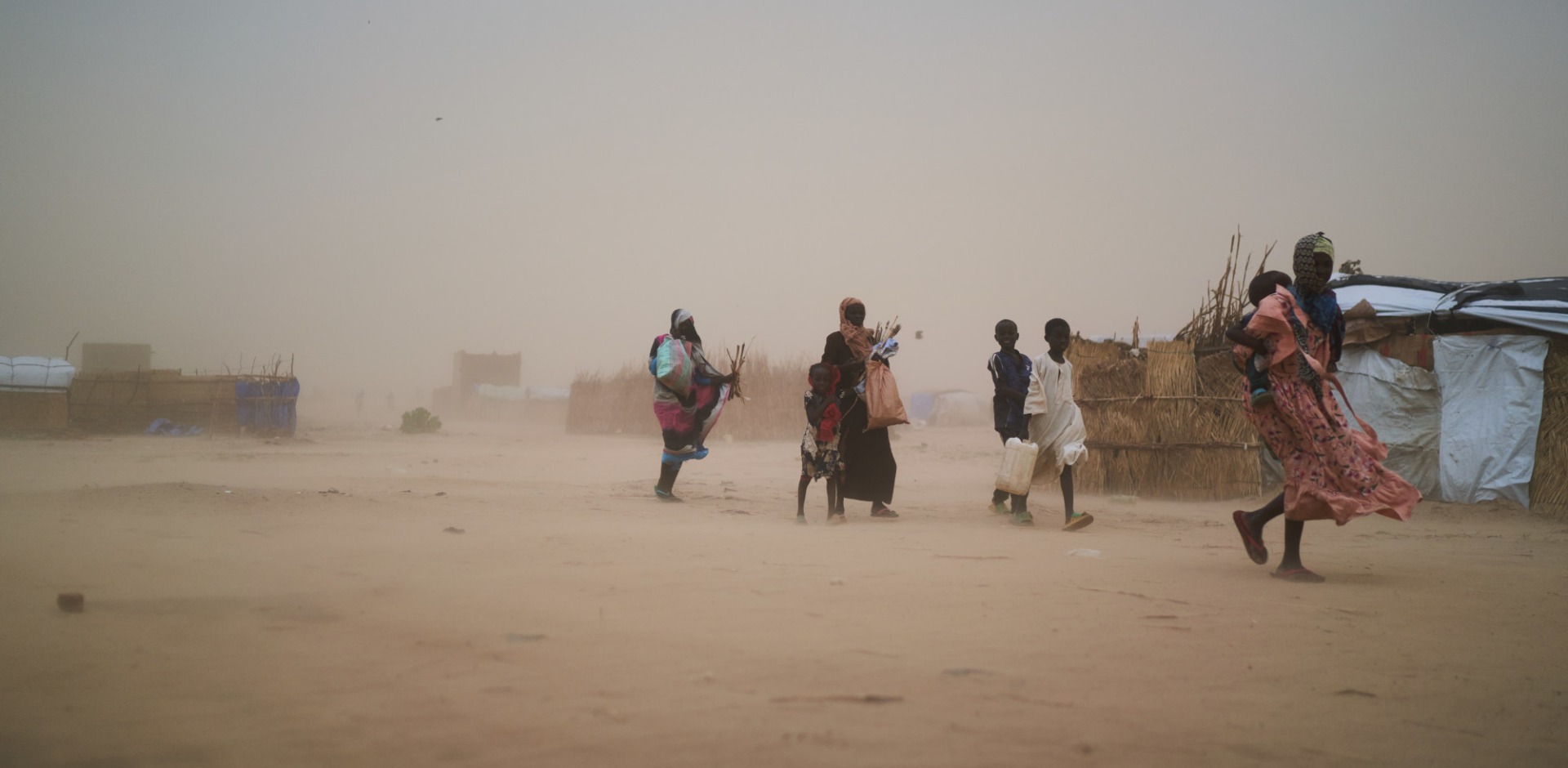
FAMINE IN SUDAN
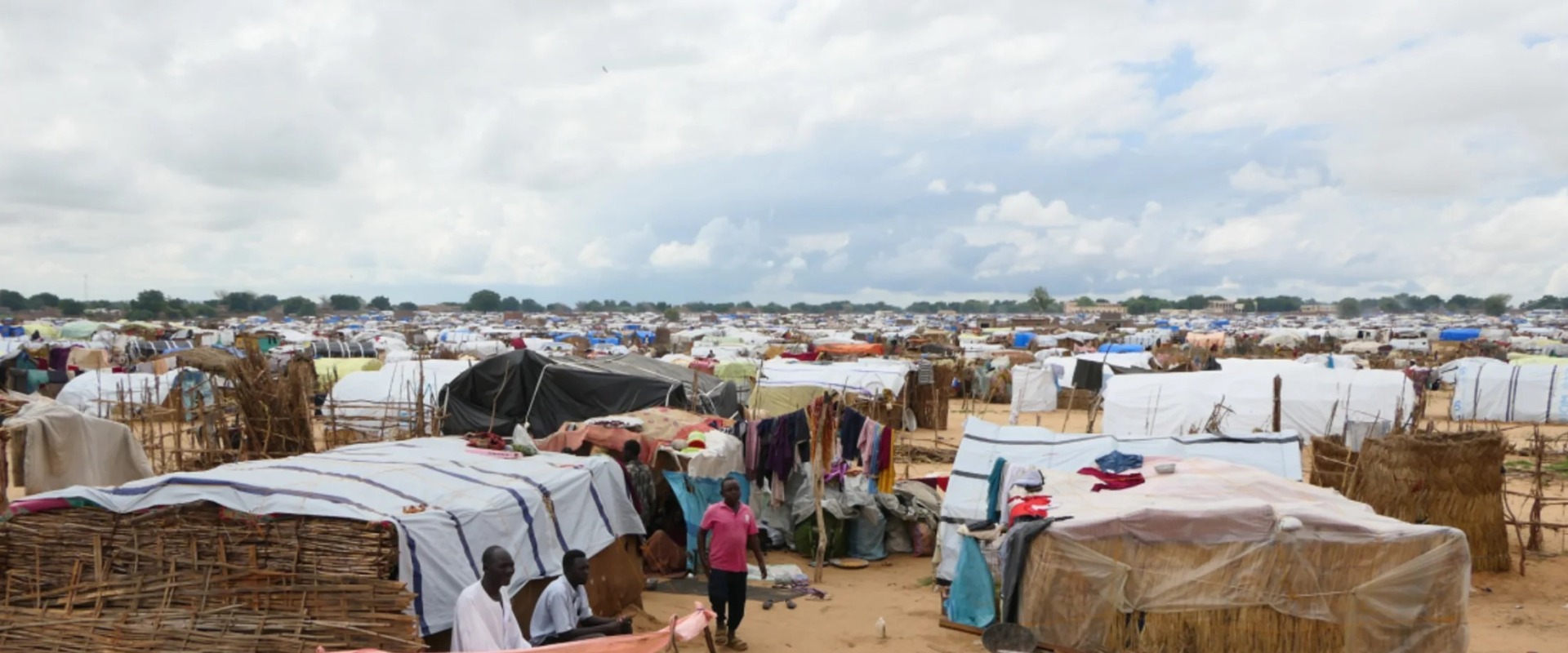
Since violent conflict in Sudan began on April 15, more than a million people have fled to neighboring countries, including approximately 378,000 Sudanese refugees and nearly 48,000 Chadian returnees to eastern Chad. This influx of people, combined with insufficient funding, has put a massive strain on already-fragile support services. Action Against Hunger, which operates in the eastern provinces of Ouaddai and Sila of Chad, today warned that the crisis is rapidly deteriorating.
Adré, a town in Ouaddai province, is home to more than 207,000 refugees – four times greater than its usual population. The town has been filled by tents and makeshift shelters, and basic services have been completely overwhelmed. The situation is catastrophic on every front: health, nutrition, shelter, access to water and sanitation, mental health, epidemic risk, and food security.
Just 34% of the funding needed for the humanitarian response in Chad has been received — not nearly enough to keep pace with growing needs. By the end of the year, 600,000 refugees are expected to arrive from Sudan. Even as the pace of new arrivals have slowed, nearly 2,000 people are fleeing Sudan and crossing the border every day.
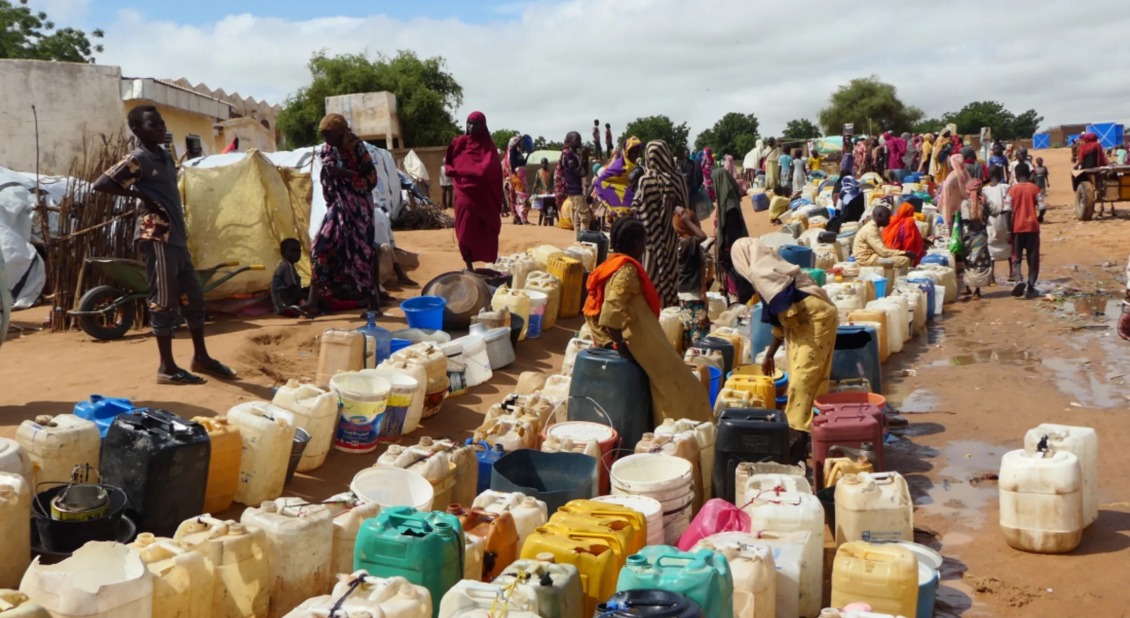
At the Lycée refugee site, where people are waiting to be relocated to official camps, round shelters made of branches and tarps are crammed into the smallest available spaces. The rainy season is in full swing, and families are sleeping by the dozen in shelters, in deplorably unhygienic conditions.
“The sun has torn the tarps they gave us. When the rain starts, we can’t even sleep. We get up and stand until the rain stops,” says Hawati, mother of two.
The overcrowding and lack of access to sanitation are compounding health risks and raising fears of waterborne epidemics like cholera. Despite the efforts of the local authorities and humanitarian partners, access to clean drinking water is a major challenge. Families only receive five liters of water per person, far from the recommended 15 liters per day.
“I have problems [accessing] water because, to transport water, we get up at 6 am and come back at 12 pm because we have to line up. Look at how we’re living, we’ve left all our things back home,” says Aziza, who sleeps on the floor of her shelter with nine of her family members. “We’re really suffering. Even the latrines are only a small hole. Young children can’t use them, they go outside and that causes illness.”
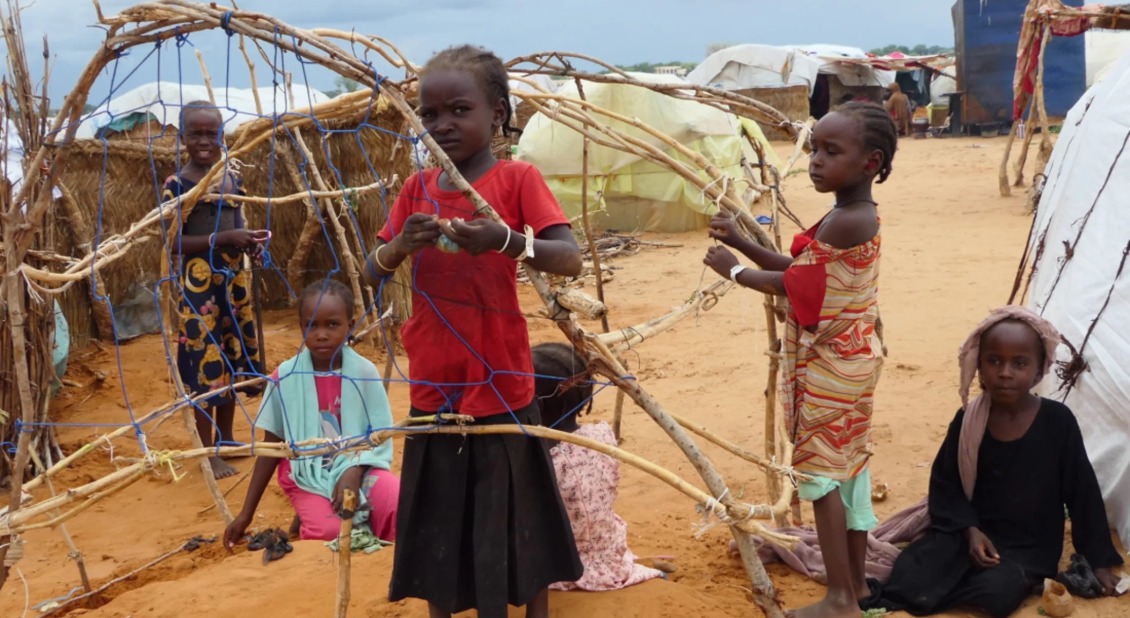
Acute respiratory infections, watery diarrhea, and malaria remain the three most frequent illnesses. In a screening of children under five years old, 28% were found to be acutely malnourished.
To support the health services in Adré, Action Against Hunger and our partners have set up a mobile clinic at the Lycée site and a nutrition treatment center at the town’s hospital to care for severely malnourished children. In addition to providing treatment, we are raising awareness about good hygiene and health practices and training community volunteers to detect and screen for malnutrition.
“The children who come to us at the [treatment center] are really in a critical state. Some are very exhausted from having travelled long distances on their mothers’ backs to seek refuge,” says Aminata Zoubeirou Mahaman, Head of Nutrition and Health for Action Against Hunger in Chad. Mahaman is equally concerned about people within host communities, whose food security is steadily deteriorating. “Food prices are rising, which can lead to malnutrition not just among the refugee children who arrive – even the locals are at risk.”
The issue of access to food, coupled with inflation, impacts refugees and locals alike. The disruption of cross-border trade between Sudan and Chad has led to a three-fold increase in the price of food items in the markets. Aminata reports that a bag of millet used to cost the equivalent of $19.50 USD before the crisis, now costs $65 USD.
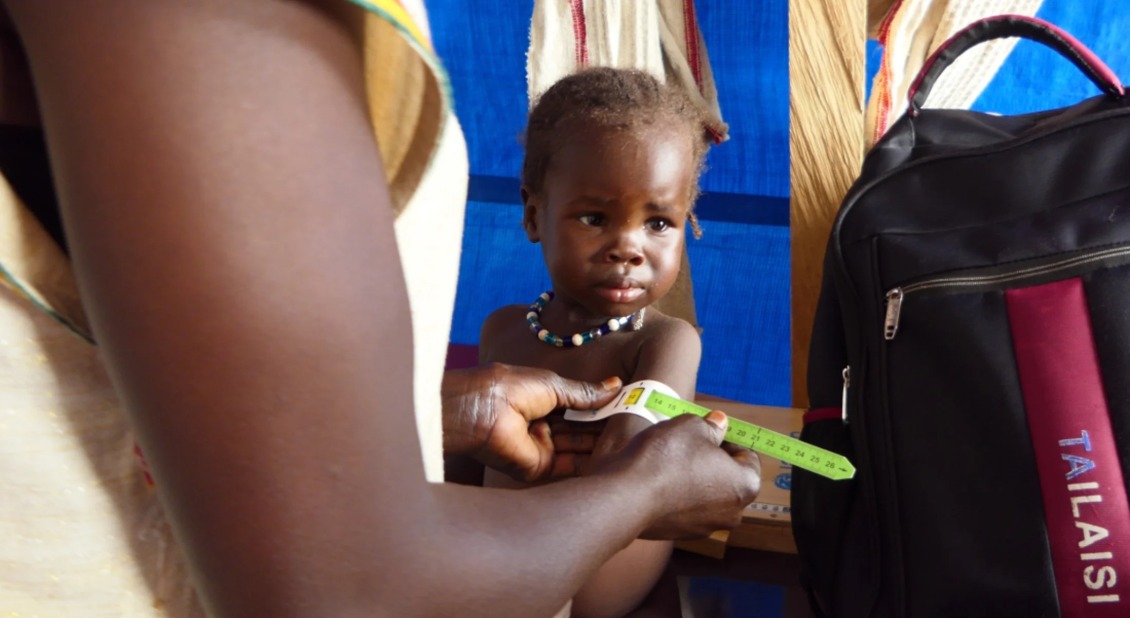
Economic insecurity, deplorable living conditions, and limited hopes for the future is also causing mental health challenges among Sudanese refugees, who have already suffered immensely from the violence they suffered in their own country and during their flight for safety.
“These are people who arrive with a lot of needs, they want to be listened to, they are disturbed, and you can see the stress in a visible way,” explains Aminata. “We do our best with our facilitators to lighten the mood a bit, to give a little hope, but there’s still a lot to be done when it comes to mental health.”
Action Against Hunger calls on donors to respond to the humanitarian emergency in eastern Chad to strengthen the humanitarian response and improve nutrition, health, water, sanitation, hygiene, mental health, shelter, and food security for refugees, returnees, and vulnerable host communities.
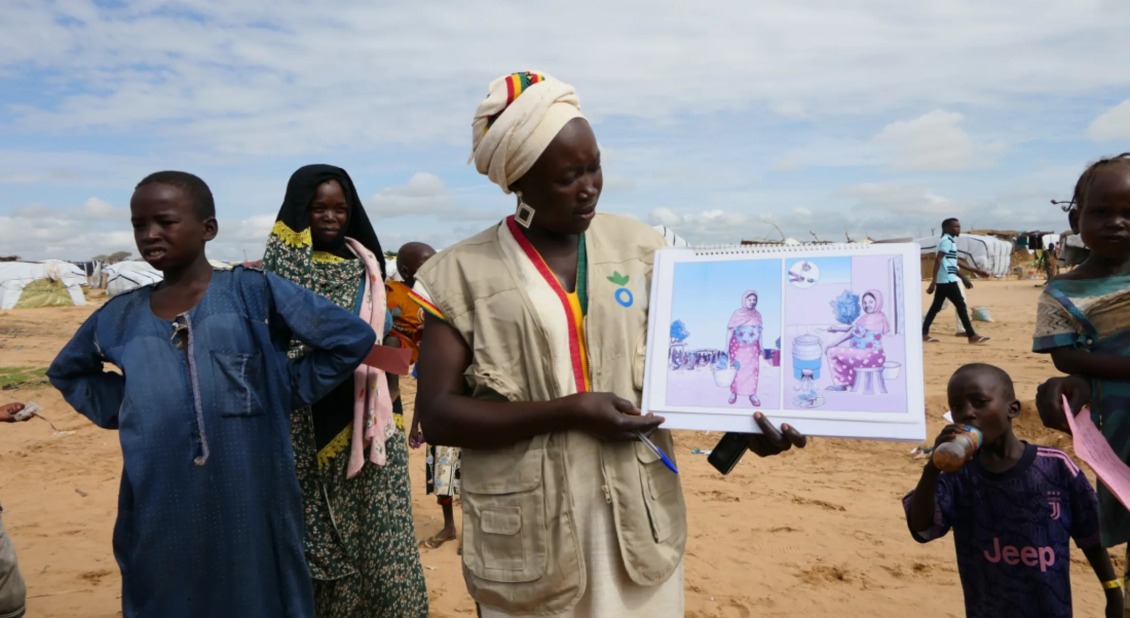
Our teams are working to provide health, nutrition, water, sanitation, and hygiene services in the Ouaddai and Sila provinces. We treat and prevent malnutrition, train and support healthcare staff, raise awareness in communities about health and hygiene, supply clean drinking water and medicines, and build latrines and showers.
Join our community of supporters passionate about ending world hunger.